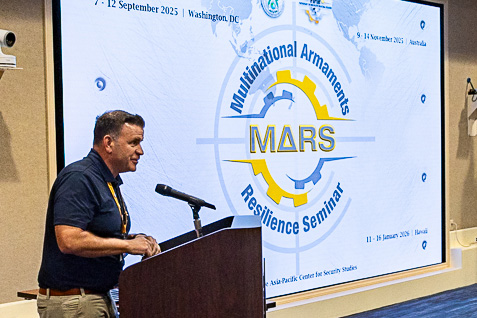A Security Nexus perspective, “Terrorism and Water Wars: India-Pakistan on the Brink of a Major Conflagration,” by Ms. Anuttama Banerji and Dr. Srini Sitaraman, examines the mounting crisis between India and Pakistan following the April 2025 terrorist attack in Kashmir that claimed 26 lives. The authors argue that India’s decision to suspend participation in the Indus Waters Treaty (IWT)—a longstanding cornerstone of India-Pakistan conflict management—marks a dramatic and dangerous escalation with wide-ranging implications.
The article contextualizes India’s response within a broader pattern of cross-border terrorism, intensified nationalist rhetoric, and declining bilateral trust. It focuses on the symbolic and strategic importance of the IWT, which has endured multiple wars and crises since 1960. The treaty has served as a confidence-building measure, offering a peaceful mechanism for resolving disputes over shared rivers.
India’s decision to place the treaty “in abeyance” following the attack reflects a strategic pivot meant to signal zero tolerance for terrorism. However, Pakistan has interpreted this as an “act of war,” deepening the standoff between two nuclear-armed neighbors. The authors caution that while the suspension may apply diplomatic pressure, it risks destabilizing South Asia’s fragile water security and igniting broader regional tensions—particularly involving China’s assertive hydro-politics in the Himalayas.
Ultimately, the authors warn that politicizing water in a region marked by climate stress, terrorism, and historic rivalries is dangerous. A breakdown of the IWT could spark prolonged crisis scenarios in the region, with consequences for India and Pakistan and wider Indo-Pacific stability.
Read the Security Nexus Paper: https://dkiapcss.edu/nexus_articles/terrorism-and-water-wars-india-pakistan-on-the-brink-of-a-major-conflagration/
The views expressed in this article are those of the author and do not reflect the official policy or position of DKI APCSS, the Department of Defense, or the U.S. Government. The appearance of external hyperlinks does not constitute endorsement by the United States Department of Defense (DoD) of the linked websites, or the information, products, or services contained therein. DoD does not exercise any editorial, security, or other control over the information you may find at these sites.










Leave A Comment